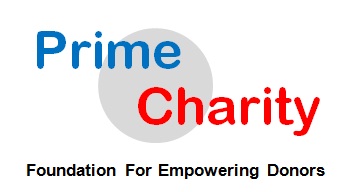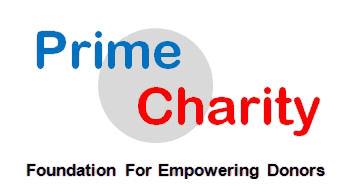How We Do



Require a Non-Profit/NGO to execute desired program
Offers Charity options which are assessed and rated on
Accreditation ensures access to large resources

With multiple criteria i.e. cause, region, structure, capability, etc.

3 Criterion of GEI Framework a) Governance, b) Efficiency, c) Impact

Support to most ethical, efficient and deserving NGOs/Non-Profits
GEI Framework
Prime Charity’s proprietary GEI Framework considers three key assessment standards with various parameters:
- Governance: Transparency in reporting, Management Credentials, Degree of conflict of Interests, Policies etc.
- Financial Efficacy: In-depth breakdown with percentage of various expenses i.e. Program, Admin, Fund raising, Salaries etc.
- Impact Measurement: Impact of the program(s), Theory of Change, Collaborations and Potential Outlook of the operations
Governance (Explicit Factors)
- Quality of Disclosures
- Management Integrity
- Risk Controls
- Conflict of Interests
- Overall Transparency
Efficiency (Quantitative Factors)
- Quality of Disclosures
- Growth Ratios
- Liquidity Ratios
- Leverage Ratios
- Overall Comparison
Impact (Qualitative Factors)
- Logic Model
- SROI & Benchmarking
- Social Inclusion
- Sustainability
- Overall Social Impact
Process Concept
- As a simple example of Charity Evaluation, consider two charities – X and Y. Both educate 1,000 children every year or save 1,000 lives every year. However, Charity X spends Rupees 50 million for this, whilst Charity Y spends Rupees 10 million. That makes Charity Y 5-times more cost-effective than Charity X because it achieved the same results at one-fifth of the cost
- Hence, a donation to Charity Y would likely help more people than the same donation to Charity X. Cost effectiveness is one of the key components of overall effectiveness parameters. However, there are many other factors also important for evaluating charities.
- Evaluation by Prime Charity involves a lot of research and expertise to identify and differentiate effective charities among millions of NGOs/Non-profits exist in India and worldwide. The outcome is backed by proper rationales and due validation.
- Along with financial efficiency, we do consider several other qualitative factors in our complex evaluation such as sustainability of the operations, potential for scale, governance, accountability and overall social impact etc.
Rating Outcomes
For Governance
We allocate a category -
- a) Satisfactory
- b) Not Satisfactory
- c) Unable to Verify
For Efficiency
We assign a grade -
| Grading | Grading Definition |
|---|---|
| AAA | Highest degree of efficiency |
| AA | High degree of efficiency |
| A | Adequate degree of efficiency |
| BBB | Moderate degree of efficiency |
| BB | Moderate degree of non-efficiency |
| B | High degree of non-efficiency |
| C | Very high degree of non-efficiency |
| D | Not at all efficient |
For Impact
We award a score -
- In the range of 0 to 100
- 100 is Highest Impactful
- 0 is Least Impactful
Prime Charity recommends Charities with Satisfactory category in Governance; Grade of BBB or above in Financial Efficacy; and above 75 score in Impact.
